One of the most iconic directors of recent times, Tim Burton is known for his patented style of bizarre horror, fantasy, and comedy most of which borrows Gothic and absurdist influences. His films bear certain tropes like twisted antiheroes, dark cloudy settings, Danny Elfman’s haunting scores, and frequent collaborators like Johnny Depp and Helena Bonham Carter.
Tim Burton’s films often leave a lot of space for interpretation for viewers to conjure up dark theories on his characters as well as connections between different films in his canon (leading up to a shared Tim Burton universe).
10 Charlie And The Chocolate Factory: Willy Wonka Is A Murderer
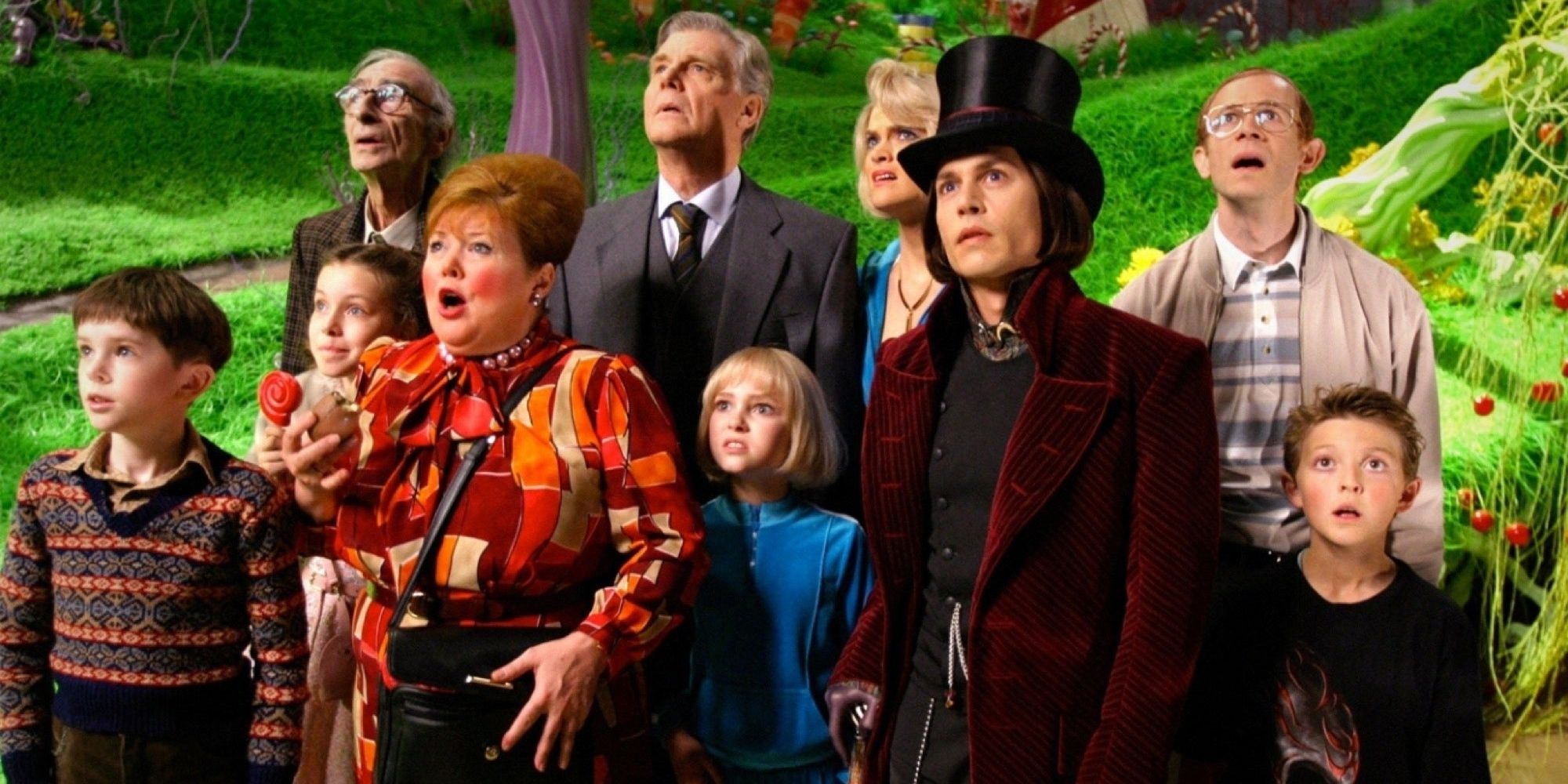
In Charlie and the Chocolate Factory, Willy Wonka fires all his employees when spies try to find out his secret formula. He hires the faithful and subservient Oompa Loompas instead. The secret that Willy Wonka might be hiding might also be that he’s a serial killer. Even the Oompa Loompas have their dance routines choreographed from before for each potential murder victim.
For instance, when Augustus is sucked out of the chocolate river from a straw, the straw conveniently big enough for a human to fit. Even the squirrels that take away Veruca show that they are well-adapted to dragging humans to the factory’s secret passages. Wonka might have trapped such children either to employ them as chocolate-making slaves or just murdered them.
9 Batman: The Joel Schumacher Films Are Reinterpretations Of Burton’s Batman
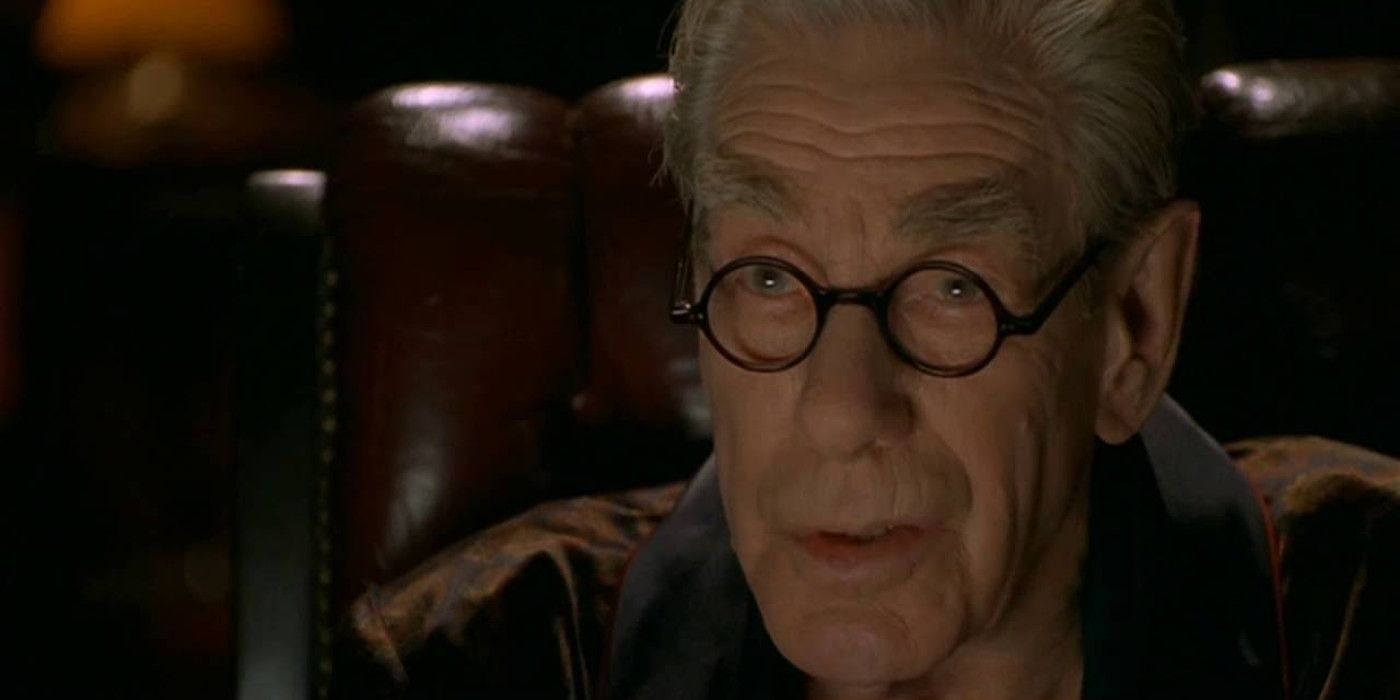
Joel Schumacher’s two Batman films, Batman Forever and Batman & Robin are unbelievably campy and vibrant for its dark brooding character who was featured in two grim, gritty Tim Burton films (Batman and Batman Returns). A widely circulated fan theory (although its original Redditor is unknown) is that the Batman (Michael Keaton) from the Tim Burton universe either dies or retires from his crime-fighting after Catwoman’s death in Batman Returns.
His alter ego becomes public knowledge after his death. Then, the dark, morally-corrupt Gotham City tries reinterpreting Batman’s life adventures for a vibrant, tacky children’s films, serving as the perfect escape mechanism for the city away from Bruce Wayne’s actual morbid life. Alfred (Michael Gough) reprises his role in these films because he too needs a source of income after his ‘Master’ Bruce’s death.
8 Corpse Bride: The Barber Was Probably Sweeney Todd
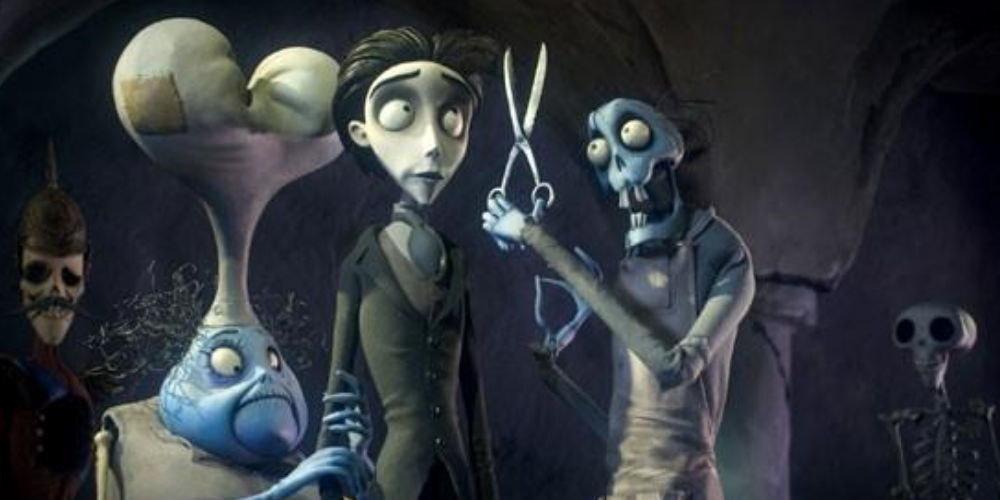
For this theory to be plausible, one needs to assume that Corpse Bride takes place in the Victorian era much like Tim Burton’s horror musical Sweeney Todd: The Demon Barber of Fleet Street. Even though Johnny played both protagonists Victor Van Dort and Sweeny Todd in these films, these can be seen as distinct characters in the Tim Burton universe.
As Victor goes to the afterlife in Corpse Bride, he encounters a barber who usually sports a pair of scissors that’s inserted halfway inside his head. The barber doesn’t reveal his cause of death but maybe he was Sweeney Todd himself, finally killed by one of the many people that he terrorized in his town.
7 Frankenweenie: The Dog Belonged To Vincent
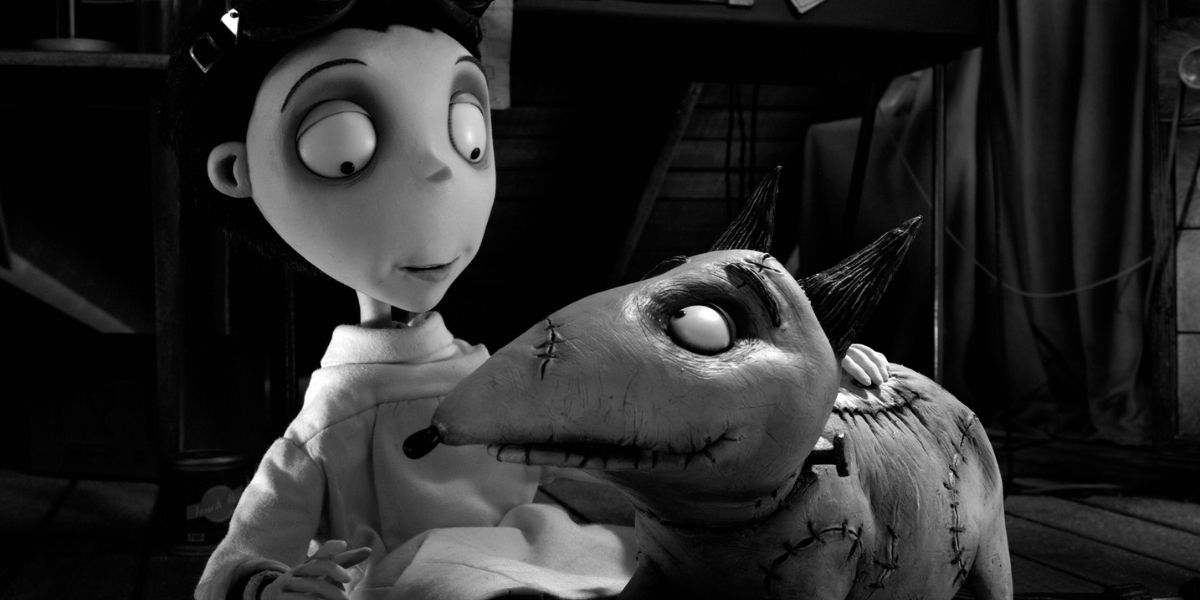
Frankeweenie focuses on a dog called Sparky that is brought to life by its scientifically-gifted owner Victor. The black-and-white animation style is similar to Burton’s first animated short Vincent.
In Vincent, the lead character Vincent Malloy is a megalomaniac science student who loses his mind in attempts to convert living creatures into zombies. He tries experimenting with his pet dog Abercrombie. Finally, the dog is saved and given up for adoption implying that Abercrombie might have been rechristened as Sparky.
6 Big Fish: A Series Of Sexual Metaphors
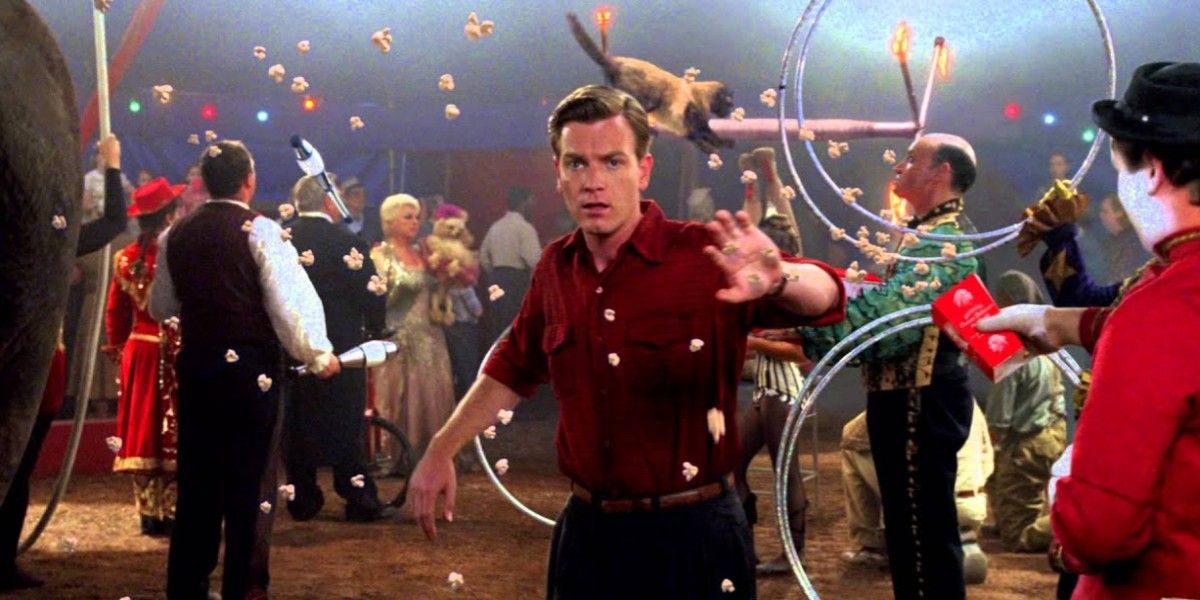
The metaphors on life in Big Fish might also have a sexual connotation. In the film, Edward tells that he was a big fish in a small pond, indicating that he had to get out of his small town. This seems to indicate a rise in his sexual urges as he gets tired of his marriage with Jenny.
Edward also tells the story of how the town faced a giant with an insatiable appetite. Edward finally confronts the giant and prompts it to leave town while doing so himself. The giant might be another allegory to his own increasing sexual appetite that might have led to an affair with the character Mildred.
5 Charlie And The Chocolate Factory: A Prequel To Snowpiercer
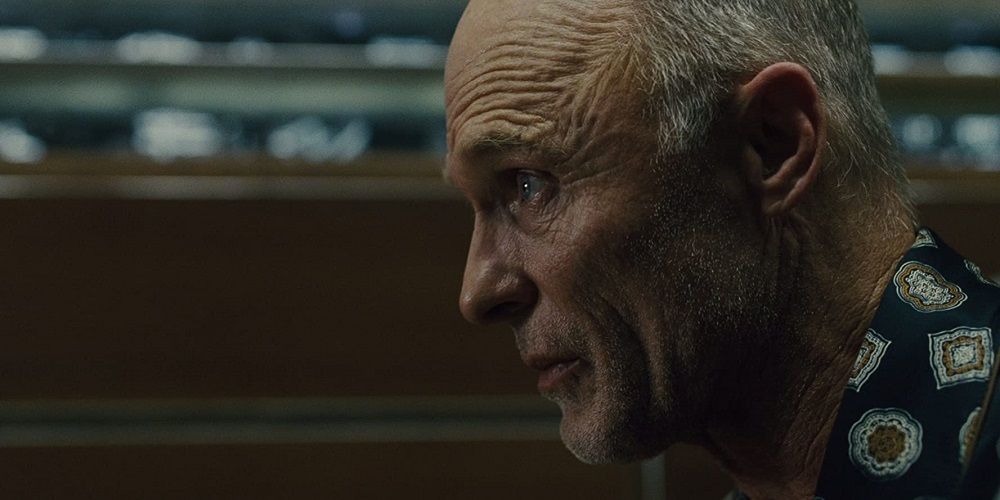
A theory suggests that Wilford, the antagonist from Bong Joon-ho's Snowpiercer, might be a grown-up Charlie (from both the cinematic adaptations) who has started an empire of oppression and murderous experiments, just like his mentor Willy Wonka. It’s no surprise that Wonka did experiment with unique modes of transporting humans as can be seen from how he disposes of the naughty kids in his factory.
Maybe, Charlie took up the name Wilfred in honor of his mentor whose real name might have probably been ‘Wilfred Wonka’. Further, the underprivileged people in the train are given food that’s revealed to be made from cockroaches and human flesh (possibly Wonka’s recipe if he used children for his chocolates). The train further works on the basis of child labor, similar to how Oompa Loompas operated the Factory.
4 The Nightmare Before Christmas: Jack Skellington’s Dog Is Sparky
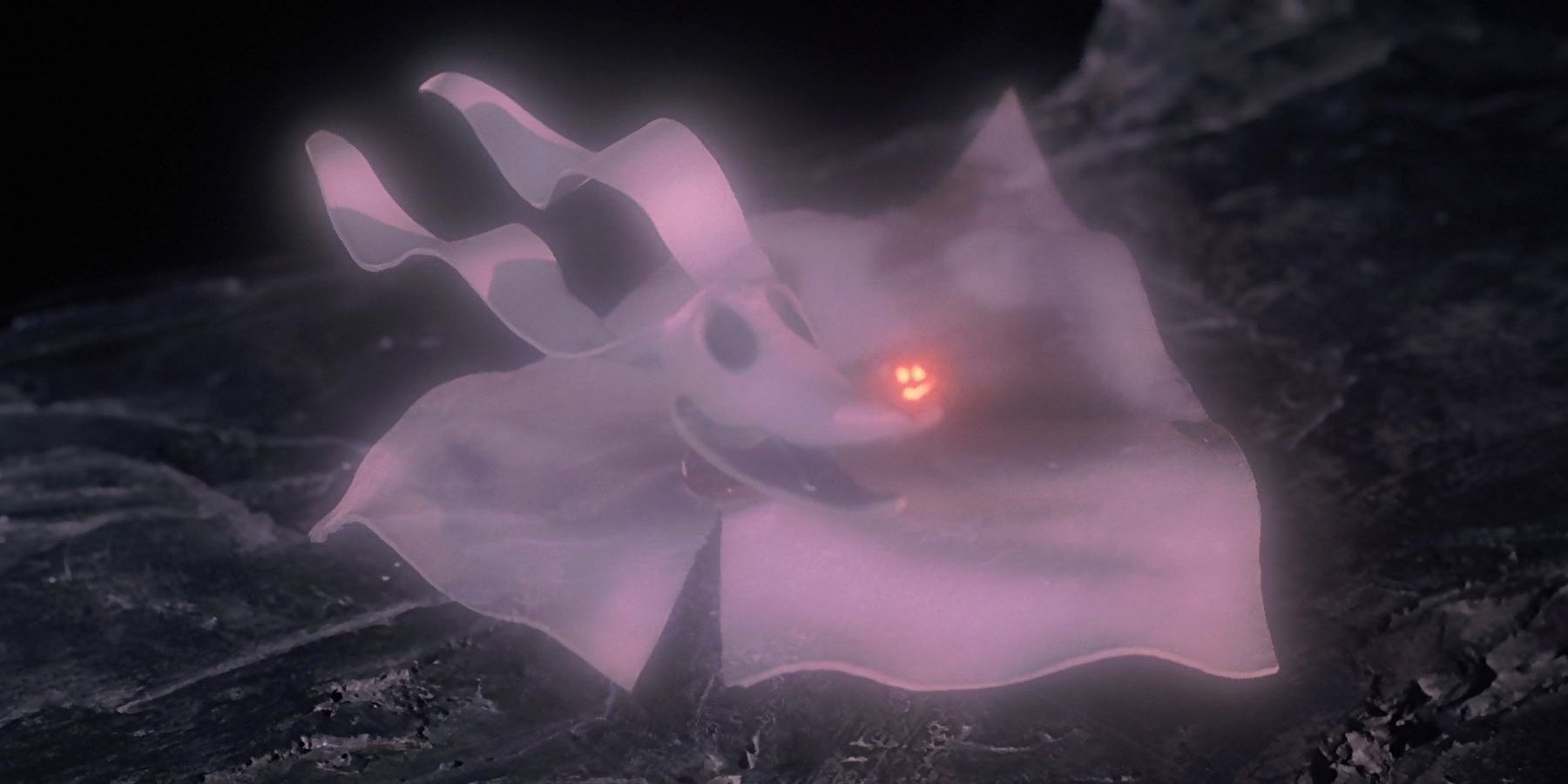
After being reanimated and then dying again, Frankeweenie’s Sparky is finally put to rest in a pet cemetery by Victor towards the end of the film. It’s highly possible that this dog ended up going to the afterlife (Halloween Town) acquiring the identity of Zero. Zero’s bone structure matches that of a Bull Terrier like Sparky.
Finally, Sparky/Zero finds another caring owner as Jack Skellington takes care of it. From Vincent to The Nightmare Before Christmas, the dog seems to be a recurring character. Some even add that the rat that died of an electric shock in Sparky’s experiment was reborn as Wolf-Man in the latter.
3 Alice In Wonderland: The Whole Film Is An LSD Trip
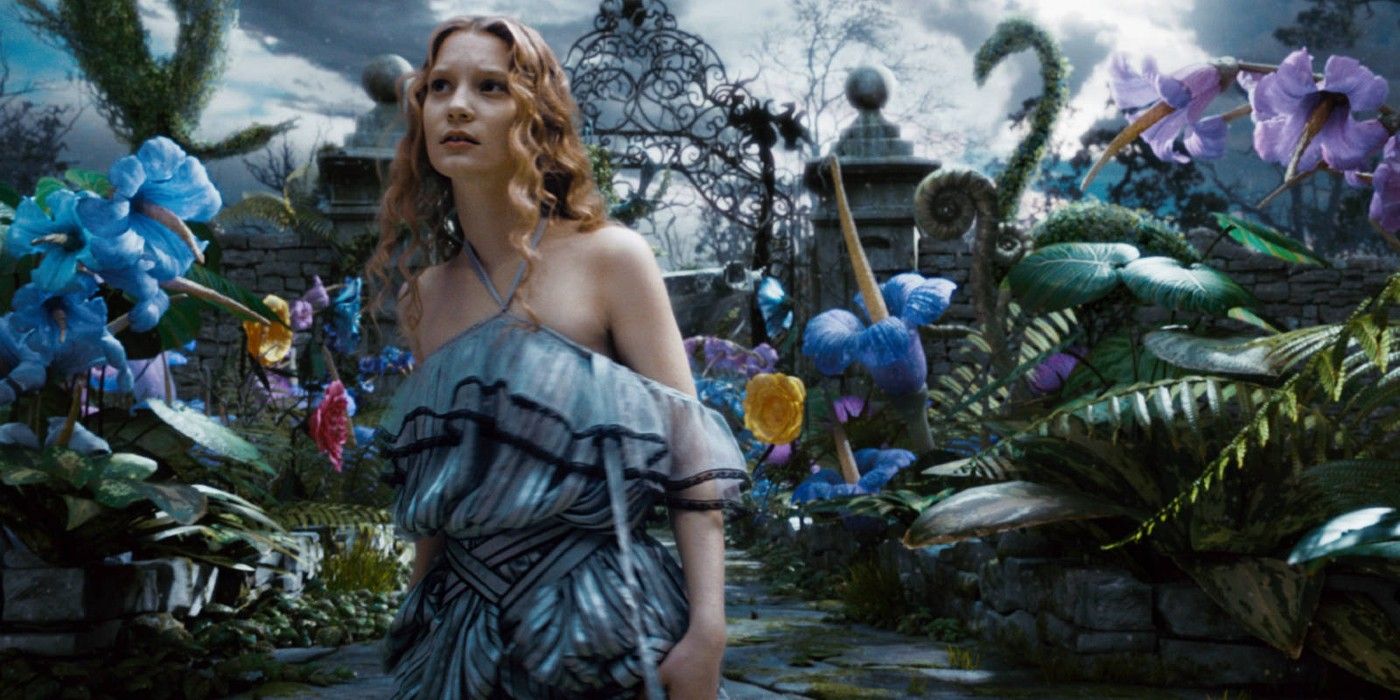
This is a theory that has been commonly suggested for both Lewis Carroll’s original novel and Tim Burton’s take on it. Alice seems to be encountering vibrant colorful surroundings and creatures after the Mad Hatter introduces her to a special kind of tea and mushrooms. She also meets a caterpillar that always seems to be smoking a certain pipe.
The theory that Alice consumed psychedelic drugs makes sense, considering the mind-altering experiences she has. She witnesses her body shrink and grow, while meeting surreal characters like the Cheshire Cat in an otherwise disjointed reality.
2 Charlie And The Chocolate Factory: Candies Were Made From Children
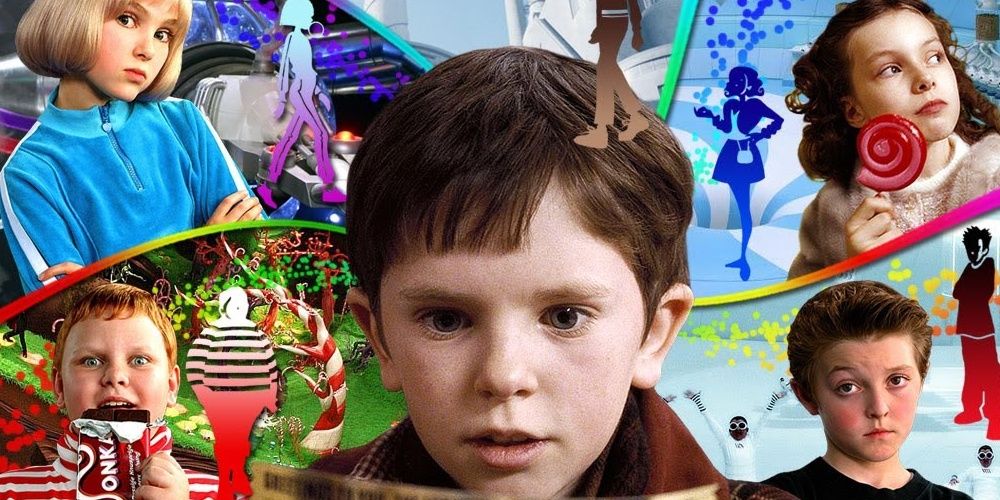
If the children in Charlie and the Chocolate Factory were not murdered, they might have been used to make candies. In the original book itself, there was a sixth child named Miranda Piker who falls down a ‘Powder Mixer’. Her mother tells Willy Wonka that he’s a murderer and grinds children into powder to which Wonka replies, ‘That’s part of the recipe!’. Even though Miranda survives, this might foreshadow a darker truth.
As shown in the film, Violet turns into a giant blueberry after chewing the ‘Three-Course Dinner Chewing Gum’. It’s possible that these children are turned into fruits only for their flavors to be extracted for Wonka’s products.
1 Edwards Scissorhands: Willy Wonka Created Edward
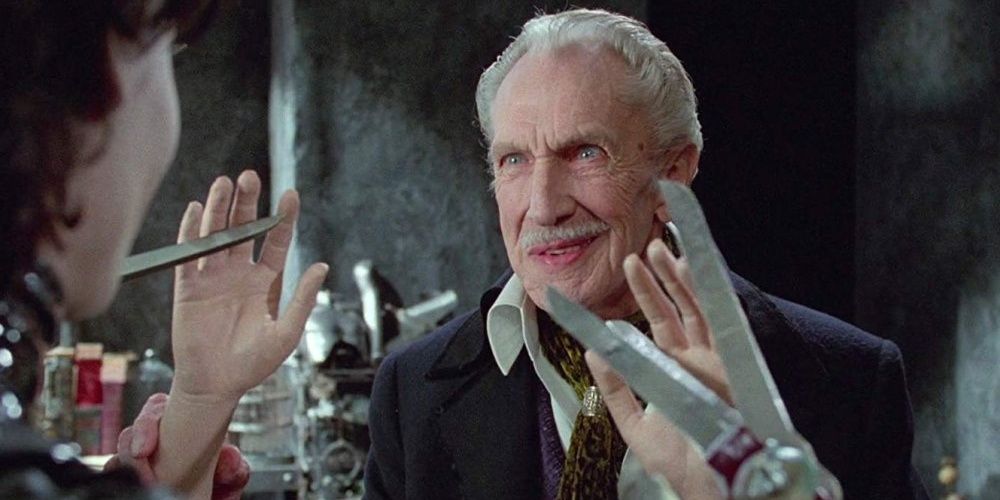
Edward Scissorhands in the film of the same name was an unfinished creation of an aging scientist. He can be seen as some sort of humanoid robot who doesn’t age and has interchangeable body parts. However, as a Reddit fan theory states, ‘The Inventor’s blueprints show Edward starting out as a Cookie Factory robot.’ Maybe, this Factory is a reference to Willy Wonka’s chocolate factory and the Inventor is just an aged Wonka.
Another theory adds up that the Inventor modelled Edward’s face after his own younger self. This might explain Johnny Depp’s likeness in both roles of Edward and a young Willy Wonka.
from ScreenRant - Feed https://ift.tt/30l4WFR

No comments:
Post a Comment